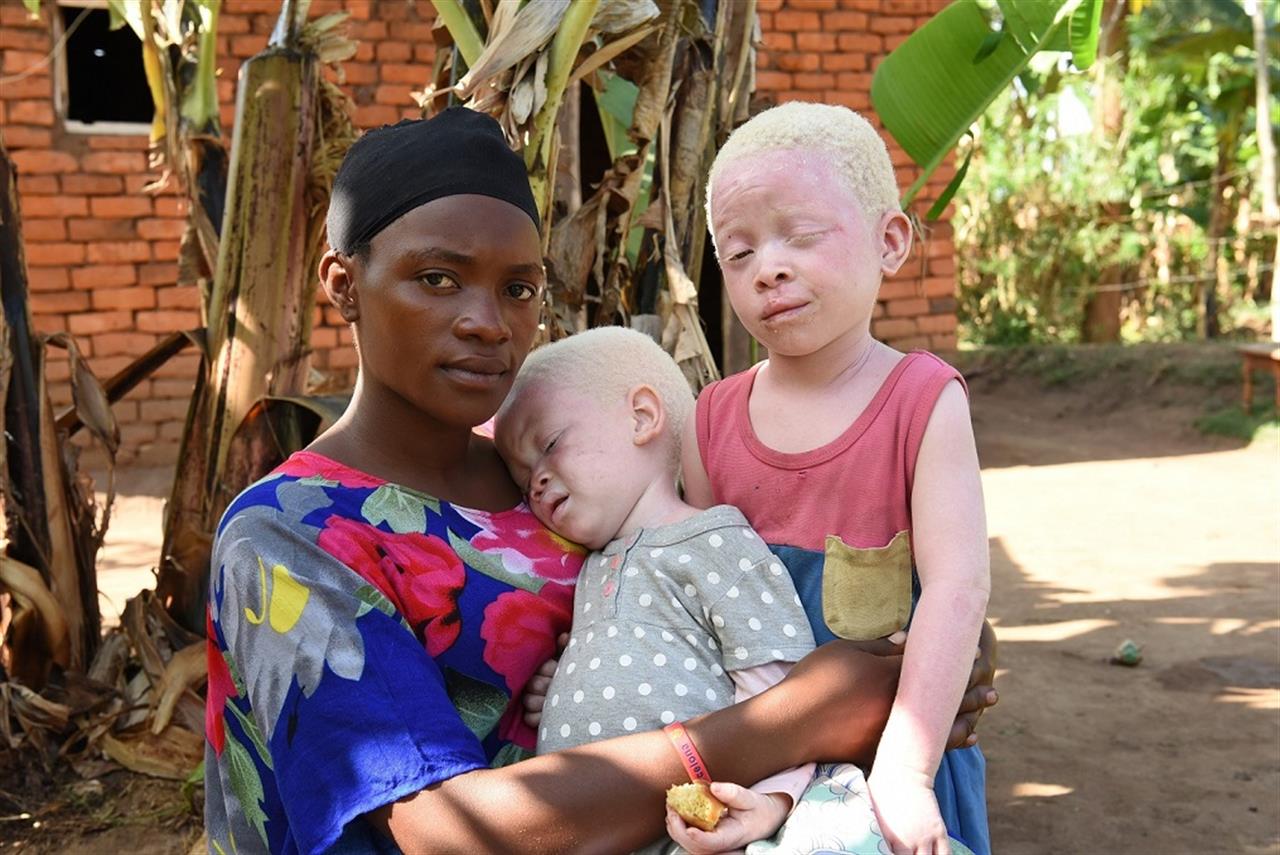The video in which Faith tells of how the community turned away from her when her two children were born is moving. About how the other children in the village don’t play with her. The only “fault” of Aisha and Akram, who are now 4 and 2 years old, is that they have white skin. They are two albino children, born to dark-skinned parents. Faith was abandoned by her husband, the community isolated the mother and children, seeing a curse in that white skin. Faith has a fruit stand and people don’t come to buy if her children are next to her. Cbm has equipped Aisha and Akram with special glasses with dark lenses to be able to see better, as well as headphones and sunscreen to protect their sensitive skin: so Aisha, who has reached school age, will be able to attend lessons and learn to read and write like all other children.
In sub-Saharan Africa one newborn in 1,400 is albino, while in the rest of the world prevalence estimates vary from 1 in 5,000 to 1 in 15,000. June 13 is their International Day. Albinism is a rare, non-contagious genetic condition that manifests itself in the absence or reduction of the pigment melanin, which protects from the sun and gives color to the eyes, skin and hair. This disease has multiple consequences: extreme sensitivity to the sun, high risk of skin cancer, vision problems. Added to this is the stigma that afflicts people with albinism. «People with albinism are often excluded and isolated from their communities, becoming invisible and experiencing their disability as a guilt and a stigma. We at Cbm are present with concrete actions for the care of sight and the improvement of the socio-economic well-being of albino people, but also to create awareness of their rights in them», comments Massimo Maggio, director of CBM Italia.
In close contact with the Albinism Umbrella Uganda association, in fact, Cbm Italia has launched a project in Uganda that integrates eye care, economic support and advocacy activities dedicated to improving the lives of 1,250 people in the districts of Kyegegwa and Kamwenge, of which the 20% are albino people. The project guarantees ophthalmological healthcare assistance through clinics in the area, which make it possible to improve eye health, but alongside this socio-economic support is guaranteed through professional training for young people to increase their income and learn how to manage it, thanks to the involvement of 25 Village Savings and Loans Associations in each district: among their members are also people with albinism, people with disabilities and carers.
